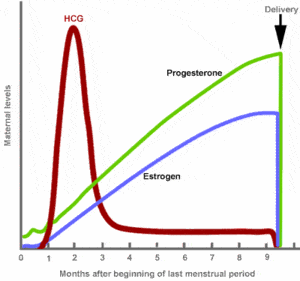Let’s talk about sex baby!
Does the thought of sex after birth make you want to cross your legs and run for the hills?
Or maybe you’re feeling super toey but you’re not sure whether it’s too early to try?
Returning to sex after birth is a topic all women want to know about (at some stage) in their postpartum journey!
As a womens health physiotherapist I work with a lot of women in helping them to achieve their sexual goals.
I bet you didn’t know some physio’s did that did you!
Many women experience a change in their sexual activity after birth often because of physical, emotional or hormonal issues.
We can help women return to pain-free and enjoyable sex after birth.
Yes that’s right.. it is very possible! Don’t say goodbye to your amazing sex life just yet!
What happens to the vulva during pregnancy?
There is an increase in blood flow to the pelvic region during pregnancy which for some women can dramatically increase their libido and heighten the sensation of their orgasm.
If you’ve ever looked “down there” during pregnancy you may notice your vulva looks larger or more swollen than usual because of the increased blood flow.
On the flip side, many women HATE the idea of sex during pregnancy. This can be due to sickness, fatigue, haemorrhoids, incontinence, vulval varicosities or poor body image just to name a few!
Either way, there is no right or wrong when it comes to your sexual behaviour. The most important thing is that you are happy and healthy and that if you have a partner you try to keep the lines of communication open.
How does delivery affect the sexual arena?
Once you have delivered your baby and membranes (regardless of whether it is vaginally or via C section) there is a sudden change in hormones.

Image via dorisking.net
Your oestrogen levels (which were sky high during pregnancy) now start to plummet to the bottom to signal to your body that you are no longer pregnant. Along with this drop in oestrogen is a rise in prolactin to encourage the lactation system to kick into gear.
The drop in oestrogen whilst lactating can cause vaginal dryness.
The vagina can become thinner, less elastic and more prone to injury.
This is your body’s way of telling you that whilst there is a baby dependant on you for life (breast feeding!) it is not ideal to conceive another!
How clever!
Though whilst you may not want to conceive another child, many of us would like to resume our sexual activities for the sake of pleasure!
How to combat vaginal dryness and improve sex
Vaginal dryness can cause discomfort and pain during intercourse if not managed effectively.
By not dealing with it properly, it can cause your body to become more tense in the anticipation of friction/pain which can then worsen pain as your pelvic floor tenses rather than relaxes.
Vaginal dryness can be easily managed with the right lubrication.
My suggestion is to avoid the generic-supermarket-full of chemical type lubricants and instead opt for silicone based lubes or natural oil based products.
Here is a list of my favourite lubricants on the market right now:
- Uberlube
- Pjur
- Olive and Bee (all natural)
- Organic coconut or olive oil (if using condoms for contraception- avoid using these oils as it can break the condom barrier)
Recovery after a vaginal delivery
The pelvic floor has been through a lot of work to be able to deliver your baby through the vaginal canal.
These muscles can stretch up to 200% the length of their normal size!

Naturally they will need some time to rest and recover properly.
Imagine these muscles like any old sporting injury. If you sprained your ankle, you would ice it, elevate it and maybe wrap it in a bandage. Much the same for your vagina!
My advice to aid your recovery after birth is to:
- Ice the perineum for 10-15 minutes, several times a day for at least the first 1-2 weeks
- Wear supportive underwear or compression shorts
- Make sure to have plenty of horizontal rest in the first 2 weeks. Don’t be upright or on your feet all day
- Avoid constipation
Recovery after a C-section
Generally the vulva is much happier after a C-section as it hasn’t been stretched like it is during a vaginal birth (obviously this will depend on the events leading up to your C-section and whether you laboured or not).
However you will still need to consider the recovery of your C-section scar and how this may affect your sexual activity.
My advice to aid your recovery after birth is to:
- Wear an abdominal support garment to help your tummy recover
- Be mindful to avoid constipation or heavy lifting for at least the first month
- Start gentle scar tissue massage after the 6 week mark
When to start thinking about sex again?
There is no perfect time to start having sex again but it is generally recommended to wait 6 weeks until you have stopped bleeding and your cervix is closed.
However if you are keen to get going earlier, just make sure that you are comfortable and pain-free!
If you are hesitant to ever want to have sex ever-ever-again-not-in-a-million-years (!) then that is OK too.
However if your desires to have sex are dramatically different to your desires pre-baby then not to worry, but do have a think about what your reasons are for not wanting to.
Many women are simply too tired.
Many women are too busy with trying to adjust to newborn life.
However some women feel scared and fearful to try again particularly if they’ve had a traumatic birth. It’s important to recognise why because you may need some extra help or support to help overcome any fears or troubles you are having.
If you are having difficulties dealing with birth trauma, please check out the Australasian Birth Trauma Association website for support.
If you are hesitant my suggestion is to take it slow.
Where do I start?
Start by exploring your vulva yourself. Either looking in a mirror or touching your vulva in the bath/shower so you can understand your own anatomy and sensations.
If you feel comfortable you may also want to explore self pleasure before you engage with your partner so that you feel in control.
Once you are ready to include your partner, you can start as slow or fast as you like.
Maybe try what we physio’s like to refer to as “outercourse”. Touching and stimulating only the outside of the vulva, with no expectation of intercourse.
Once you feel comfortable you can gently try intercourse (with lot’s of lubricant!!!) and be open to trying different positions as certain positions will feel more or less comfortable than they did pre-baby.
Many women will prefer being on top so that they can control the pace.
Other women will like spooning so that the penetration is not so deep and their body is supported (for example if your abdominals or back doesn’t feel strong enough for other positions).
If you have tried several times with no luck, or you continue to have persistent pain beyond the first 4-6 months then I strongly recommend you see your local pelvic floor physio as the sooner you get on top of it the better!
If you’re in Victoria, you can check out this website to see where your closest pelvic floor physio is.
If you’d like to know more (or just hear me say the word sex a little more!) then come and listen to me talk allll about it at this year’s Mummycon conference in Melbourne! Click the link to purchase tickets and make sure to say hello!
xo Physio Laura
